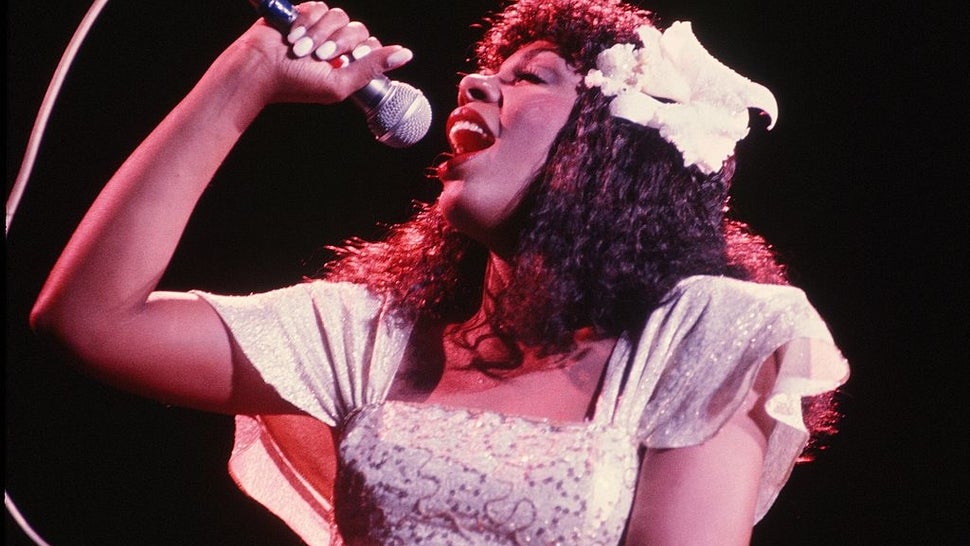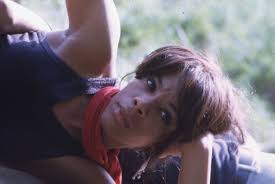← Back to Reviews
in
Love to Love You Donna Summer
Eleven years after her death, HBO has brought us a slightly pretentious, but ultimately empty look at the Queen of Disco called Love to Love You Donna Summer, that does a competent overview of the singer's brief and brilliant career, but offers little insight into who this diva was.

Directed by Roger Ross Williams and Donna's daughter, Brooklyn Sudano, the film surprisingly opens at the height of her career in 1975, when she has just recorded the controversial 1975 chart topper "Love to Love You Baby." For those too young to remember this record, I'm going to suggest that you go to You Tube and listen to it. Summer is observed explaining her inspiration behind the song and how it secretly haunted her for the rest of her life.

The film then recounts Donna's childhood, being raised by God-fearing parents who were convinced their baby was going to grow up and be a Gospel singer. It was a little unsettling when revealed that Donna's two biggest musical influences growing up were Mahalia Jackson and Janis Joplin, two artists who couldn't have been more opposite and how their influence was the genesis of the Queen of Disco is still a mystery.

There were a few things about Summer I learned via this documentary, most notably that she actually wrote the majority of her records (of course she didn't write "MacArthur Park). Unfortunately, like when we get a celebrity documentary about a film actor, we usually get information on how the film was inspired and how it was eventually conceived into the final product, but we get very little of that here. We do learn where the inspiration for the "Toot toot beep beep" at the beginning of "Bad Girls" came from. Was really hoping for some behind the scenes dirt on her duet with Barbra Streisand "Enough is Enough", but it's barely mentioned.

Through narration mostly provided by family members, we learn that there was a certain arrogance to Summer from the very beginning and that she always knew she was going to be a star. On the other hand, while watching the tons of archival concert footage of the singer performing live, she never looks truly happy and that this wasn't the original route that she wanted her career to take. And far as her live singing is concerned, it's quite noticeable the difference between her singing live and the recordings we all remember, which apparently were heavily enhanced in the studio before release.

There is screentime devoted to the many relationships Summer had with men and I was a bit taken aback to discover that Summer was almost exclusively involved with white men, though that is never really addressed. And maybe because it was so long after her death, but I felt the same way after watching this as I did when I watched the Jennifer Lopez documentary Halftime...there's a real wall constructed here between the viewer and the subject that kept me from enjoying it as much as I should have.
Eleven years after her death, HBO has brought us a slightly pretentious, but ultimately empty look at the Queen of Disco called Love to Love You Donna Summer, that does a competent overview of the singer's brief and brilliant career, but offers little insight into who this diva was.

Directed by Roger Ross Williams and Donna's daughter, Brooklyn Sudano, the film surprisingly opens at the height of her career in 1975, when she has just recorded the controversial 1975 chart topper "Love to Love You Baby." For those too young to remember this record, I'm going to suggest that you go to You Tube and listen to it. Summer is observed explaining her inspiration behind the song and how it secretly haunted her for the rest of her life.

The film then recounts Donna's childhood, being raised by God-fearing parents who were convinced their baby was going to grow up and be a Gospel singer. It was a little unsettling when revealed that Donna's two biggest musical influences growing up were Mahalia Jackson and Janis Joplin, two artists who couldn't have been more opposite and how their influence was the genesis of the Queen of Disco is still a mystery.

There were a few things about Summer I learned via this documentary, most notably that she actually wrote the majority of her records (of course she didn't write "MacArthur Park). Unfortunately, like when we get a celebrity documentary about a film actor, we usually get information on how the film was inspired and how it was eventually conceived into the final product, but we get very little of that here. We do learn where the inspiration for the "Toot toot beep beep" at the beginning of "Bad Girls" came from. Was really hoping for some behind the scenes dirt on her duet with Barbra Streisand "Enough is Enough", but it's barely mentioned.

Through narration mostly provided by family members, we learn that there was a certain arrogance to Summer from the very beginning and that she always knew she was going to be a star. On the other hand, while watching the tons of archival concert footage of the singer performing live, she never looks truly happy and that this wasn't the original route that she wanted her career to take. And far as her live singing is concerned, it's quite noticeable the difference between her singing live and the recordings we all remember, which apparently were heavily enhanced in the studio before release.
There is screentime devoted to the many relationships Summer had with men and I was a bit taken aback to discover that Summer was almost exclusively involved with white men, though that is never really addressed. And maybe because it was so long after her death, but I felt the same way after watching this as I did when I watched the Jennifer Lopez documentary Halftime...there's a real wall constructed here between the viewer and the subject that kept me from enjoying it as much as I should have.
